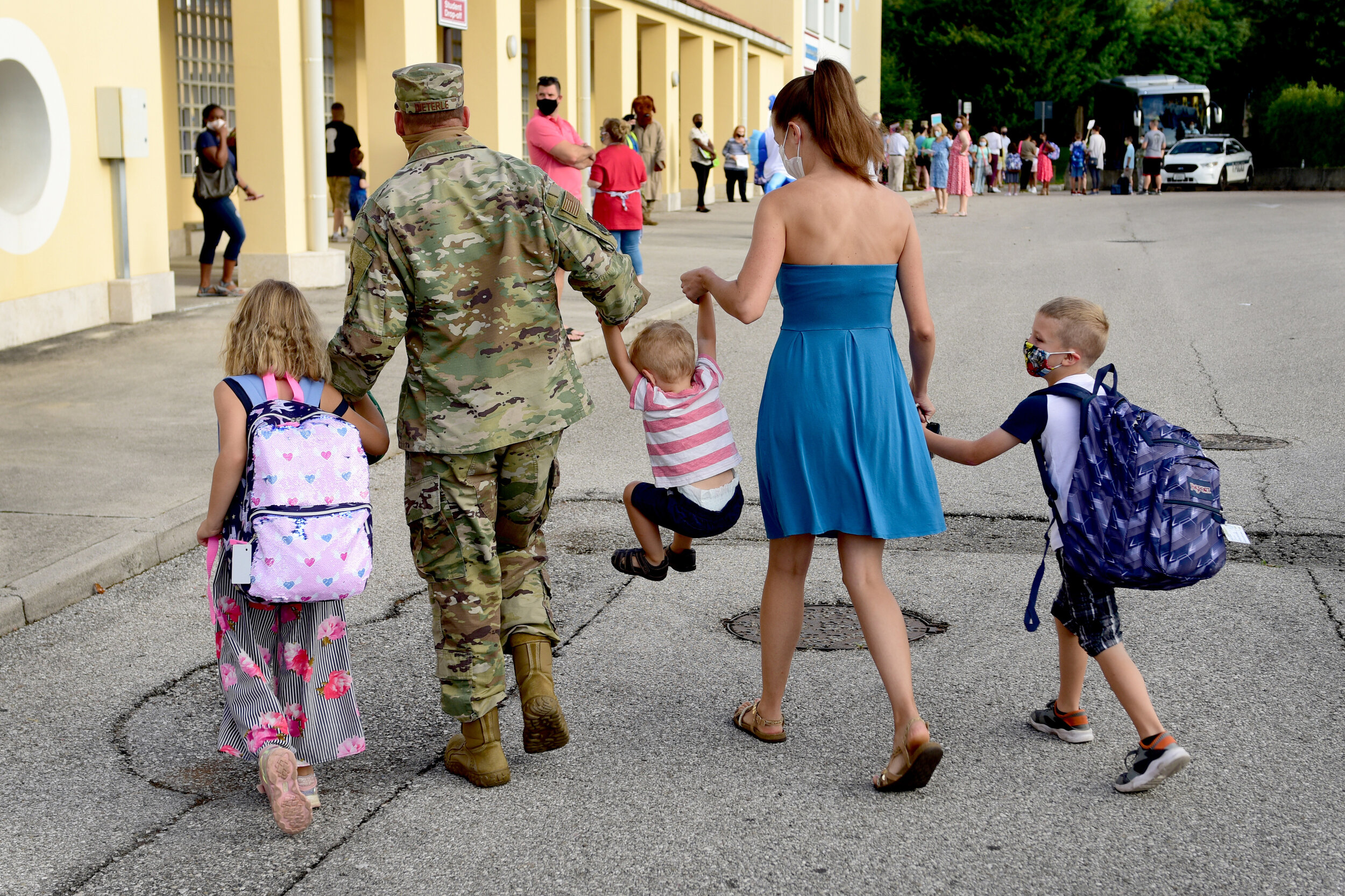Here’s how the White House plans to help military kids
Air Force Staff Sgt. Jason Dieterle and his family head to the Aviano Elementary School building at Aviano Air Base in Italy in August 2020. The education of military kids is a focus of the White House Joining Forces Initiative. (Department of Defense)
After high school senior Tatihana Loya’s last move from Colorado to North Carolina, she went from being in the top 10 percent of her class at her old school to falling behind her new classmates, based on a difference in graduation requirements and course order.
“It was very scary and very shocking to feel like I was ahead and I felt like I was prepared for college and then suddenly, just like that, in the snap of fingers, I was behind,” she said on the April 21 episode of The Spouse Angle podcast.
Academic differences are just one of the challenges military kids face when moving from school to school so frequently. Loya, whose father served in the Marine Corps until recently, said she also struggled with making new friends and social connections.
To help the more than two million children of service members and veterans like Loya, First Lady Jill Biden has decided to tackle education as part of the White House Joining Forces Initiative, an Obama-era program relaunched by the Biden administration that supports military and veteran families, caregivers and survivors.
“Our schools want to support all students, but they don’t always know how to do so,” Biden said in the April 7 announcement. “We’re going to work with educators and our government partners to make sure that you, our military connected kids, have what you need to succeed.”
The Joining Forces Initiative “will advance programming to support military-connected children in their classrooms, and help ease the burdens created by the highly mobile military lifestyle,” according to the White House.
What that programming will be remains to be seen, but advocates are hopeful, given the program’s track record when Biden last worked on the initiative with then-First Lady Michelle Obama.
Becky Porter, president of the Military Child Education Coalition, one of many advocacy organizations partnering with the White House on this initiative, said the original Joining Forces helped to emphasize the Military Interstate Children’s Compact Commission, or MIC3, a group that helps facilitate things like class placement, transcript translation and graduation requirements for military kids in transition.
“Joining Forces initially really did help to solidify that commission that had already started and get it into an organization that really does continue to help military families, particularly those who are going from one state to another,” Porter said. And it also highlighted the importance of the Military Student Identifier, a way to track how military kids are performing across school systems, which became part of the federal Every Student Success Act education law passed in 2015.
Tatihana Loya, a high school senior and former military kid, and Becky Porter, president of the Military Child Education Coalition
“What I’d like to see going forward is additional emphasis not only from the White House, but also from a legislative perspective as well, on supporting the educational needs of military-connected kids,” Porter said.
As for Loya, she hopes this initiative helps with the academic struggles that come with transition.
“That is really stressful as a student, especially if you’re trying to get scholarships or trying to become top 10 percent of your class or top 5 percent or wanting to be valedictorian and that was just taken away from you because those credits did not transfer,” Loya said. “So, I think that’s a really great initiative that they should push for and I’m glad that they are focusing on that because it is really stressful as a student to see that happening.”


